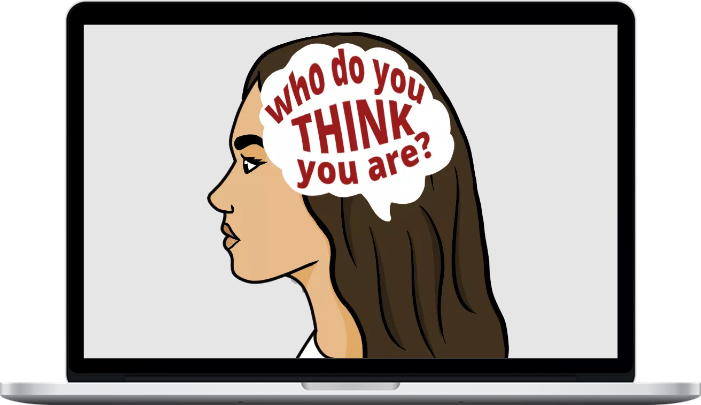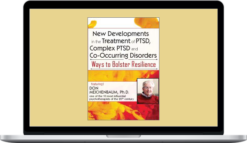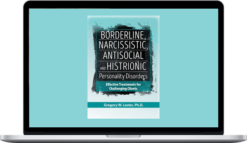NICABM – Expert Strategies For Working With Impostor Syndrome
$197.00 $59.00
Total Sold: 2
»Instant Delivery
Description
NICABM – Expert Strategies For Working With Impostor Syndrome
Working with Impostor Syndrome: Expert Strategies to Help Clients Struggling with Shame, Self-Doubt, and Feelings of “Never Good Enough”
“Any day now, they’re going to find out I’m a fraud.”
This is a concern you might hear frequently from some clients. And while some level of self-doubt can often be normal . . .
. . . many clients are plagued with the near-constant worry of not measuring up, of never being good enough, even though they’re more than competent – they work hard, they excel, and in most cases they achieve great success.
This dug-in fear of being exposed as a fraud is often a sign that your client is struggling with what’s called impostor syndrome.
While impostor syndrome isn’t something you’ll find in the DSM, it can lead to anxiety, depression, and debilitating feelings of shame and unworthiness.
Beyond that, it can also give rise to missed opportunities, lost contributions, unfulfilled goals, even failed relationships – because when someone has impostor syndrome, they have a tendency to hide and hold themselves back.
To effectively work with impostor syndrome, we have to understand what’s going on in the nervous system when impostor syndrome takes hold.
Not only that, we need to know how to work with the specific social patterns that can perpetuate impostor syndrome.
That’s why we’ve brought together 21 of the world’s top experts to bring you . . .
Expert Strategies for Helping Clients Who Struggle with Impostor Syndrome
How to Identify What’s Triggering Your Client’s Impostor Syndrome

Ron Siegel, PsyD Shelly Harrell, PhD Rick Hanson, PhD Lynn Lyons, LICSW
- Three Specific Internal Factors That Might Be Driving Your Client’s Impostor Syndrome (and Strategies for Working with Each One)
- How Feelings of Never Good Enough Are Intrinsically Linked to Impostor Syndrome (and One Way to Help Your Client Address Them)
- One Counterintuitive Approach for Working with the Self-Doubt That Fuels Impostor Syndrome
How to Work with the Specific Social Patterns That Can Perpetuate Impostor Syndrome

Kelly McGonigal, PhD Christine Padesky, PhD Christopher Willard, PsyD Rick Hanson, PhD Joan Borysenko, PhD Miguel Gallardo, PsyD
- One Way to Think About a Major Driver of Impostor Syndrome (and How It Can Adversely Affect Your Client’s Performance)
- Why the Experience of Impostor Syndrome Is Heightened for People in Marginalized Groups
- One Surprising Experience That Can Spark a Client’s Impostor Syndrome
- How to Help When Internalized Social Messaging Leads to Impostor Syndrome
- A 3-Step Approach to Help Clients Whose Coping Strategies Are Making Their Impostor Syndrome Worse
What’s Happening in the Nervous System When Impostor Syndrome Takes Hold
Stephen Porges, PhD Deb Dana, LCSW

- What the Nervous System Can Tell Us About How to Treat Impostor Syndrome
- Two Types of Comparison That Can Impact Your Client’s Physiological State (and Their Influence on Impostor Syndrome)
- Specific “What If” Questions That Can Help Your Client Navigate Their Nervous System
- One Nervous System “Default” Response That Can Feel Safest (Even Though It Often Perpetuates Impostor Syndrome)
How to Work with the Body to Shift Clients Out of Impostor Syndrome
Pat Ogden, PhD Kelly McGonigal, PhD Joan Borysenko, PhD

- Integrating Body-Based Strategies to Shift Your Client Out of Impostor Syndrome
- The Link Between a Client’s Sense of Self and Their Body (and How This Can Shape Your Work with Impostor Syndrome)
- One Experiment to Help Your Client Lower Defenses Around Their “Hidden Self”
How to Work with Impostor Syndrome That’s Rooted in Trauma
Janina Fisher, PhD Christopher Willard, PsyD

- The Critical Link Between Developmental Trauma and a Client’s Sense of Having a “False Self” (and How to Challenge This Notion)
- An Expert Technique to Help Traumatized Clients See Their Impostor Syndrome as a Survival Skill
- Simple Yet Skillful Languaging to Help Your Client Separate from the Belief That They’re an Impostor
How to Reframe Your Client’s Experience of Impostor Syndrome
Bill O’Hanlon, LMFT Michael Yapko, PhD Kelly McGonigal, PhD Kelly Wilson, PhD Resmaa Menakem MSW, LICSW, SEP

- One Key Shift That Can Help Your Client Move Out of an Impostor Mindset
- What to Do When a Client’s Impostor Syndrome Leads Them to Invalidate the Feelings of Others (and Why This Can Be So Problematic)
- Why an Understanding of the “Tragic Gap” Can Be Key in Helping Clients Who Struggle with Impostor Syndrome
- How to Work with a Client Whose Impostor Syndrome Won’t Let Up Even When They’ve Collected Evidence to Refute It
- Specific Language and Framing to Help Your Client Use Impostor Syndrome as Fuel for Growth
How to Work with the Impact of Impostor Syndrome on Your Client’s Relationships
Richard Schwartz, PhD Stan Tatkin, PsyD, MFT Kelly McGonigal, PhD Deany Laliotis, LICSW Ron Siegel, PsyD

- The Link Between Impostor Syndrome and Exhaustion – and How to Help Your Client Understand Its Impact on Their Relationships
- What to Do When Clients Hide Behind “Impostor Parts” to Guard Against Hurt, Rejection and Abandonment
- One Way to Help Your Client See How a Past Relationship Might Be Feeding Their Present Experience of Feeling Like an Impostor
- An Attachment Exercise to Help Clients Challenge What’s Driving Their Impostor Syndrome
- The “Pivot Points” That Can Lead to Impostor Syndrome, and How to Help Your Client Identify Them
What Can Go Wrong When You’re Working with Impostor Syndrome
Resmaa Menakem MSW, LICSW, SEP Ron Siegel, PsyD Christopher Willard, PsyD

- Exactly What to Say When You Make This Common Mistake in Addressing a Client’s Impostor Syndrome
- Why It’s Essential to Help Clients Pick Up on Patterns Within Their Experience of Impostor Syndrome (and One Way to Do It)
- The Importance of Using a Measured, Gradual Pace with Impostor Syndrome – A Case Study
How Practitioners Might Use a Personal Experience of Impostor Syndrome to Help Their Clients
Peter Levine, PhD Miguel Gallardo, PsyD Ron Siegel, PsyD Michael Yapko, PhD Rick Hanson, PhD

- Three Specific Questions That Can Help Clients Reduce Their Preoccupation with Social Comparison
- How One Expert Was Able to Keep His Own Impostor Syndrome at Bay (and How You Can Use This Strategy with Your Clients)
- How to Work with Impostor Syndrome That Is Fueled by an Over-Attachment to Outcomes
More courses from the same author: NICABM
Delivery Policy
When will I receive my course?
You will receive a link to download your course immediately or within 1 to 21 days. It depends on the product you buy, so please read the short description of the product carefully before making a purchase.
How is my course delivered?
We share courses through Google Drive, so once your order is complete, you'll receive an invitation to view the course in your email.
To avoid any delay in delivery, please provide a Google mail and enter your email address correctly in the Checkout Page.
In case you submit a wrong email address, please contact us to resend the course to the correct email.
How do I check status of my order?
Please log in to HealingCourse account then go to Order Page. You will find all your orders includes number, date, status and total price.
If the status is Processing: Your course is being uploaded. Please be patient and wait for us to complete your order. If your order has multiple courses and one of them has not been updated with the download link, the status of the order is also Processing.
If the status is Completed: Your course is ready for immediate download. Click "VIEW" to view details and download the course.
Where can I find my course?
Once your order is complete, a link to download the course will automatically be sent to your email.
You can also get the download link by logging into your HealingCourse account then going to Downloads Page.
Related products
Total sold: 2
Total sold: 1









